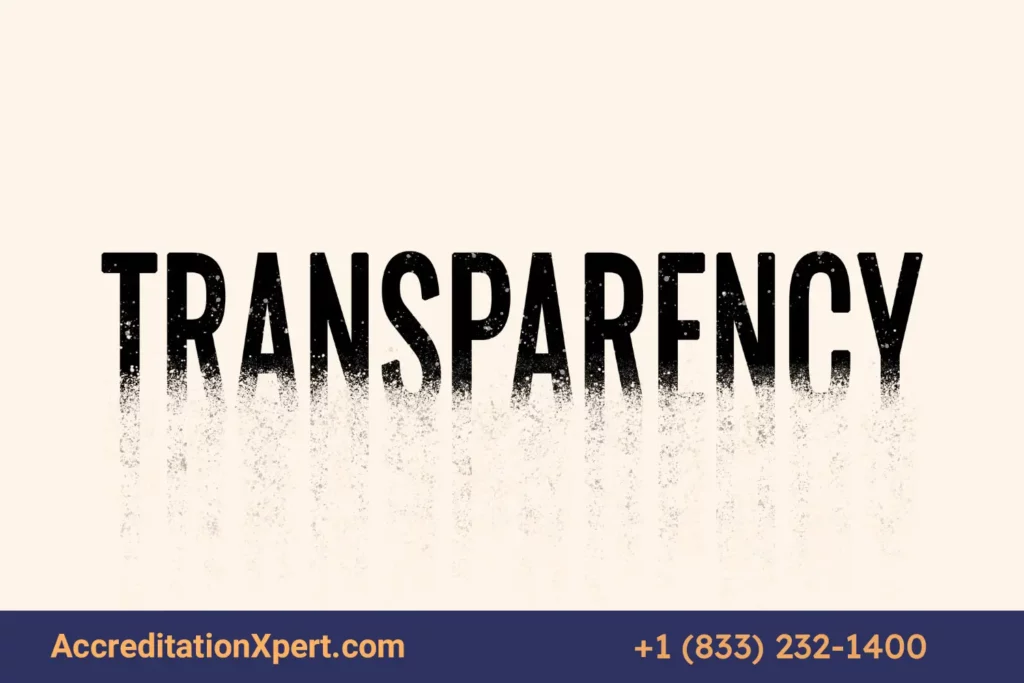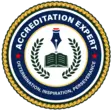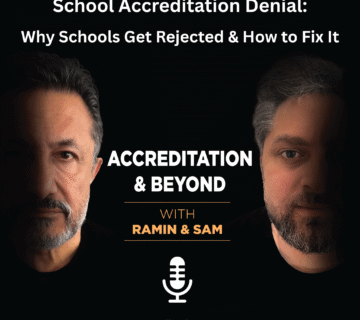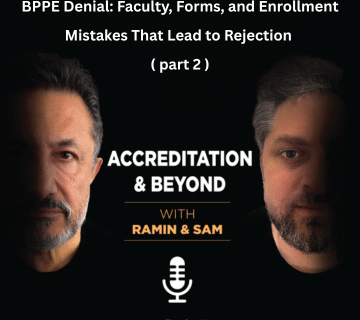
BPPE Compliance : Avoid costly BPPE violations! Learn how to identify and prevent prohibited business practices to protect your institution’s accreditation and compliance status.
As we continue our in-depth series on complying with Bureau for Private Postsecondary Education (BPPE) regulations, this seventh installment focuses on identifying and avoiding prohibited business practices that can jeopardize an institution’s operating license.
In this article, you’ll learn:
✔ Key BPPE compliance violations that institutions must avoid
✔ The impact of CA Civil Code § 1788.93 on transcript policies
✔ Best practices to ensure institutional integrity and transparency
At Accreditation Expert Consulting, we help universities, vocational schools, and colleges uphold the highest compliance standards, secure state authorization, and maintain accreditation.
BPPE compliance is particularly critical for institutions operating in California, where regulations are strictly enforced. Higher education institutions across the U.S. must also follow evolving accreditation and compliance requirements to maintain their legitimacy and avoid fines.
Understanding Prohibited Business Practices

Clarity in Communication
Institutions must be precise in how they represent their accreditation status. The term “approval” must always be accompanied by a disclaimer clarifying that it refers to compliance with California state standards under the Private Postsecondary Education Act of 2009.
Transparency and Honesty
Educational institutions must never make misleading or false statements regarding:
✔ Test scores
✔ Grades
✔ Attendance records
✔ Placement success rates
✔ Financial information
These areas are highly scrutinized during BPPE audits and inspections. Any form of misinformation can result in severe financial penalties and compliance violations.
Need help with BPPE compliance audits? Get expert guidance here: Schedule a Consultation
For additional insights on BPPE advertising compliance, read our BPPE Advertising Guide.
Prohibited Practices Under CA Civil Code § 1788.93
Fair Handling of Transcripts
Under California law, institutions cannot:
✔ Refuse to provide a transcript because a student owes debt
✔ Condition transcript issuance on payment of a debt, except for a nominal fee to cover processing
✔ Charge a higher fee or apply restrictions based on financial obligations
✔ Use transcripts as a debt collection tool
These laws ensure that all students have equitable access to their educational records, regardless of their financial status.
For official BPPE policies on student transcripts, visit: BPPE Official Site
Learn more about student rights in higher education at U.S. Department of Education.

Best Practices for Compliance & Institutional Integrity
Regular Staff Training
All administrative and academic staff should undergo mandatory BPPE compliance training to ensure they understand the specifics of prohibited practices and legal requirements.
Conducting Compliance Audits
✔ Schedule internal audits to proactively identify potential compliance issues
✔ Work with external consultants (like Accreditation Expert Consulting) to ensure full BPPE compliance
✔ Keep thorough documentation to prepare for BPPE inspections
Transparent Policies & Student Rights
✔ Publish and maintain clear policies regarding grades, transcripts, and financial information
✔ Ensure students have easy access to their rights and responsibilities
✔ Align institutional policies with state and federal laws
How Accreditation Expert Consulting Can Help
Navigating BPPE compliance regulations can be overwhelming. At Accreditation Expert Consulting, we offer:
✔ Custom compliance audits to prevent costly violations
✔ Training programs to keep your staff up to date on BPPE regulations
✔ Regulatory guidance to secure accreditation and state approval
Final Thoughts
BPPE compliance requires proactive awareness of prohibited practices and continuous adherence to state and federal education laws.
✔ By following these best practices, your institution can:
✔ Avoid compliance violations and maintain accreditation
✔ Build trust with students, faculty, and regulatory agencies
✔ Operate with full transparency and institutional integrity




